What do I have to pay attention to with sustainable shoes?
- minutes reading time
Everyone is now talking about sustainably produced clothing and it has long since ceased to be a niche market. Sustainable shoes, on the other hand, are often harder to find.
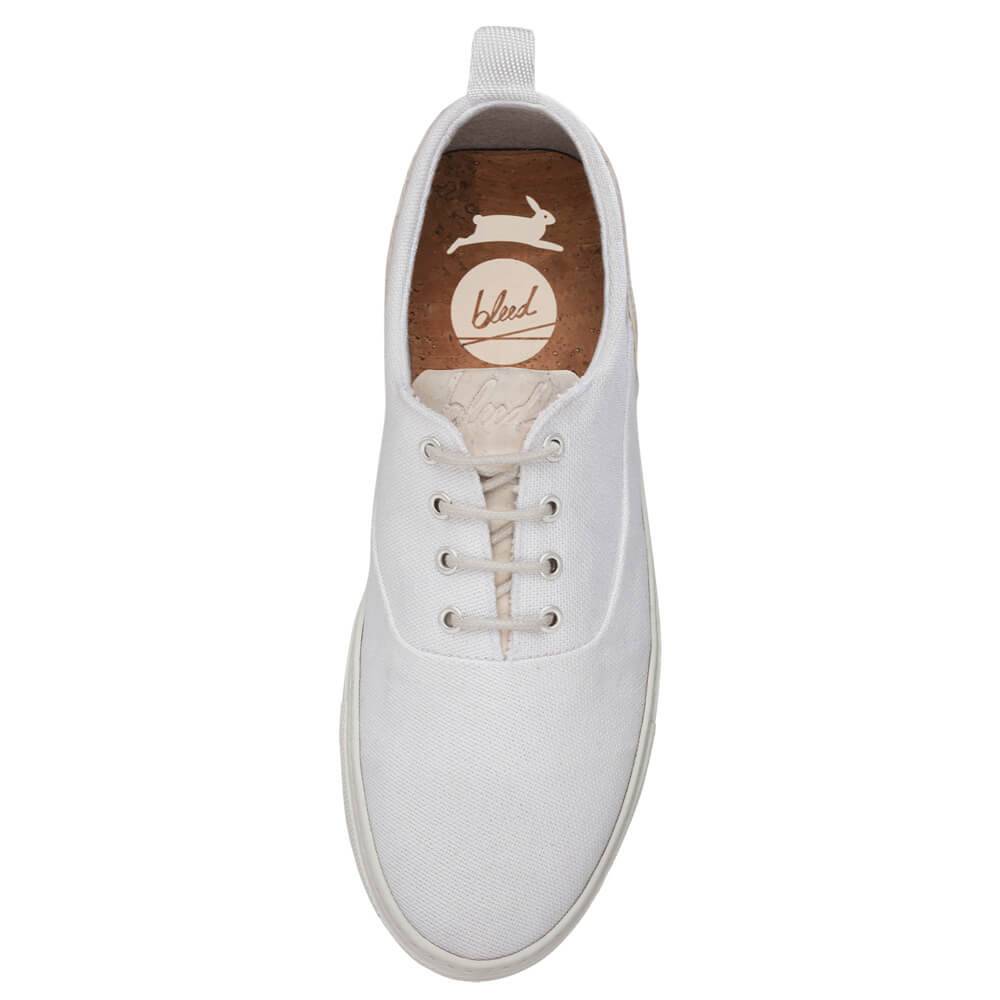
The shoe industry is one of the steadily growing economic sectors worldwide. In 2019 a new production record of 24.2 billion pairs of shoes was reached. Most of these are sold in Europe, followed by China and the USA. Shoe production is still extremely labor-intensive, as many production steps still have to be done by hand. Therefore many companies outsource their production to low-wage countries with lower labor and wage standards in order to save costs. An analysis of pricing clearly shows that only about 2 % of the final price of a shoe goes into the wages of the workers who produce the shoe. A quarter of the price remains with the brand, about a third in retail.

Sustainable shoes – what does that mean exactly?
Apart from the very important purchase criteria such as style, quality, wearing comfort and price, when buying shoes one should also pay attention to whether they have been produced sustainably. But what exactly does “sustainable” mean?
If you only look at the material of the shoes, then they should be made from environmentally friendly raw materials and as resource-friendly as possible. Unfortunately, the much-appreciated leather is not always the best choice. This is because during chemical tanning with chromium III, it can oxidize to chromium VI, which is not only highly toxic, but also carcinogenic, if not handled properly. Leather is also more than questionable in terms of animal welfare. As a “waste product” of the slaughtering industry, its use seems to be sustainable, but the high demand has changed the situation considerably: In the meantime, leather has mutated from a by-product to a “breeding product”. Animal welfare often plays only a secondary role.
At the same time, fair working conditions should also prevail in production. Shoe production is still extremely labor-intensive, since many production steps still have to be done by hand. Therefore many companies outsource their production to low-wage countries like India, Bangladesh or Cambodia with lower labor and wage standards in order to save costs. In these countries, little or no attention is paid to compliance with environmental standards during production, and the workers – often including children – usually have to slave under catastrophic, sometimes even life-threatening conditions. A price analysis of the Clean Clothes Campaign clearly shows that only about 2% of the final price of a shoe is paid to the wages of the workers who produce the shoe.
Therefore, sustainable brands commit themselves to certain labor, environmental and social standards. These include, for example, payment above the legal minimum wage or the use of natural materials, but also animal welfare.
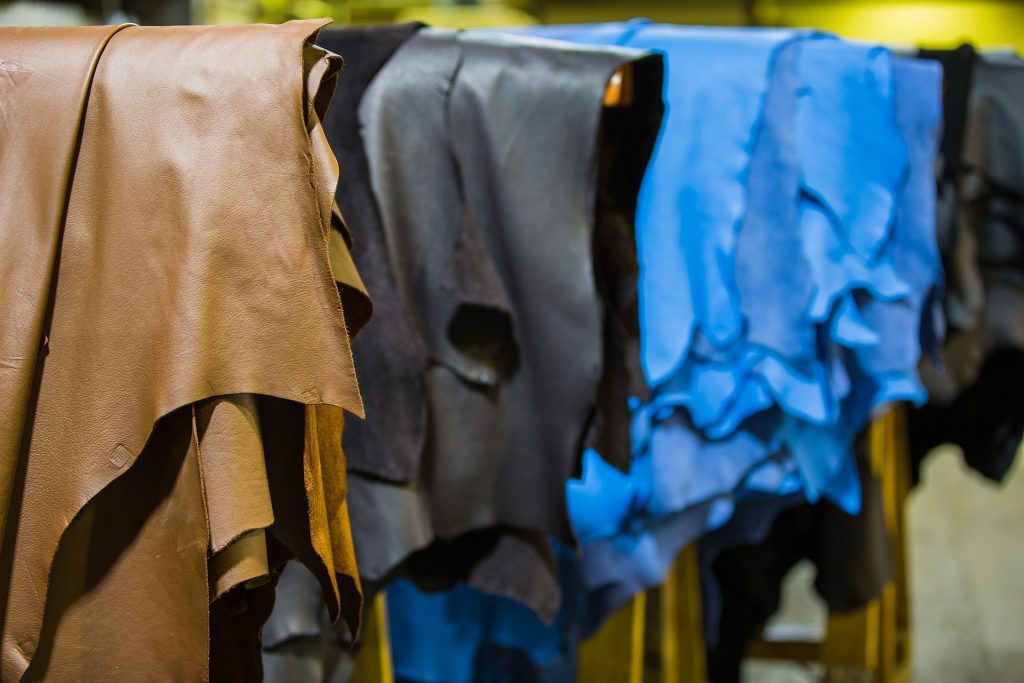
Are vegan shoes automatically sustainable?
Even vegan shoes are not automatically sustainable – because for sneakers made of imitation leather, petroleum-based plastics such as polyurethane (PU) or PVC are often used. These materials are just as unsustainable as real leather, which has a very poor CO2 balance and environmental footprint due to factory farming and the tanning process – which often uses toxic chemicals such as chromium salts. Therefore, for vegan shoes, one should make sure that ecological materials on a vegetable basis (e.g. cotton or linen) or synthetically produced materials from recycling processes (e.g. from PET bottles) have been used in the production. Some eco-brands also use more “exotic” fabrics made of hemp, cork or pineapple leaves. Their ecological and social balance sheet varies greatly from case to case. So if you not only value vegan, but also fair sneakers, you not only look at the material, but also at the origin as well as special eco-labels.
How do I recognize sustainable shoes?
In order to recognize whether a product is sustainable, you can use special sustainability and fair trade seals of approval. Particularly strict criteria are applied by the GOTS seal (Global Organic Textile Standard), the EU Eco-Label and the seal of the International Association of Natural Textile Industries (IVN). The latter, for example, is only awarded to products that are made of 100% natural materials and are completely biodegradable.
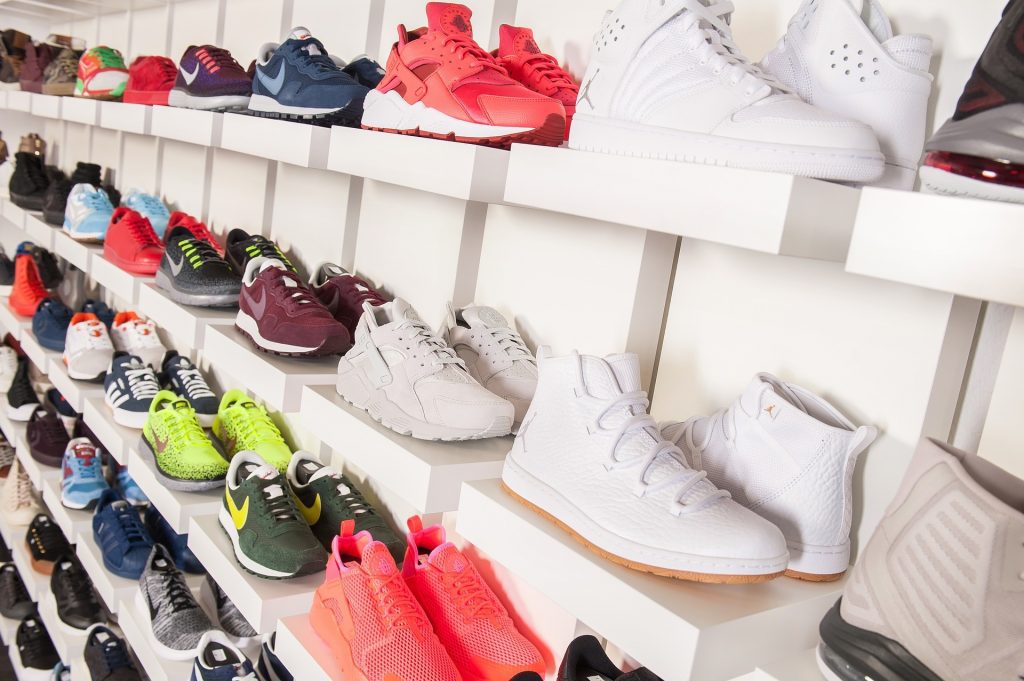
Our sustainable shoe shopping tips:
Even though many representatives of the footwear industry still believe that sustainability in the footwear sector is either impossible or very difficult to implement, some of our Sympatex brand partners from our Footwear division have been tackling the issue of sustainable and fair footwear and shoe production in a very concrete way for some time now and have already achieved some notable successes.
Sustainable sneakers
At our brand partner bleed you can find for example sustainable, fair and vegan sneakers, which are 100% climate neutral and produced in Europe according to the motto #walkingwithoutfootprints. The new white ECO4 sneaker proves that sustainability in the shoe industry does not have to conflict with functionality and a beautiful design. The durable upper is made of recycled cotton and recycled polyester (PES), the sewn sole is made of recycled plastic and the mix with natural rubber makes it very comfortable. For extra cushioning, the insoles are made of cork and recycled materials. Even the laces are made of recycled PES with metal end caps to guarantee long durability. The unisex model belongs to the new “White Rabbit Edition” by bleed. That means it is a cooperation product with the animal rights organization PETA. You can recognize it by the bunny logo on the sole and in the heel cap – which gives it a little extra fashion kick.
The ECO4 Sneaker is a climate neutral product. By consistently using high quality recycled materials and sourcing as locally as possible, bleed has managed to reduce the CO2 footprint per shoe to under 4kg. The young company from the Franconian Helmbrechts has had the remaining 4kg CO2 certified by ClimatePartner to be climate-neutral. By the way, it supports the development of a forest protection project in Kenya in order to fight climate change and to preserve important habitats.
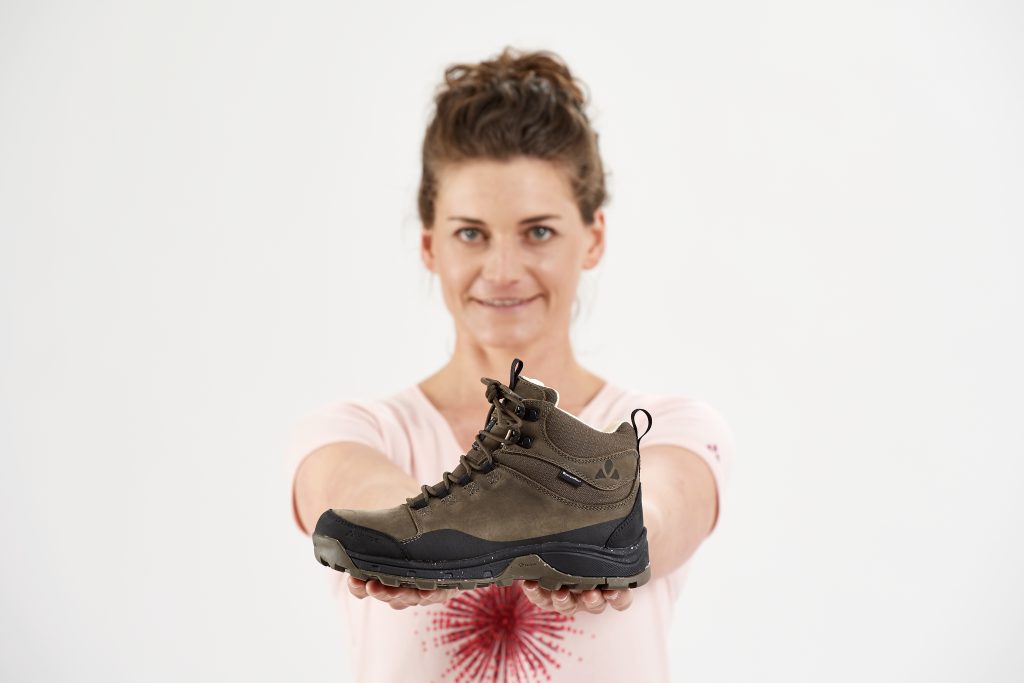
Sustainable hiking and outdoor shoes
If you are looking for robust hiking and outdoor shoes, you will find them at our brand partner VAUDE: The family business from Tettnang has been in the outdoor and mountain sports business for almost 50 years and is constantly setting new standards for sustainable management, environmentally friendly product innovations and fair production conditions – also in the development of sustainable and fair shoes.
VAUDE currently has the new HKG Core Mid STX hiking shoe for men and women on the market, which features a very comfortable, natural and ecological material package – with leather tanned in Germany, the 100% recycled Sympatex membrane and climate-neutral Sympatex linings. Next summer, the Tettnang-based company will launch a new urban line from Portugal, which goes a step further for some materials and also allows all materials to be returned to the production cycle. Even the sole will be separable and recyclable – in combination with certified leather from Germany, recycled materials and environmentally friendly production, this guarantees a sustainable and fair product.
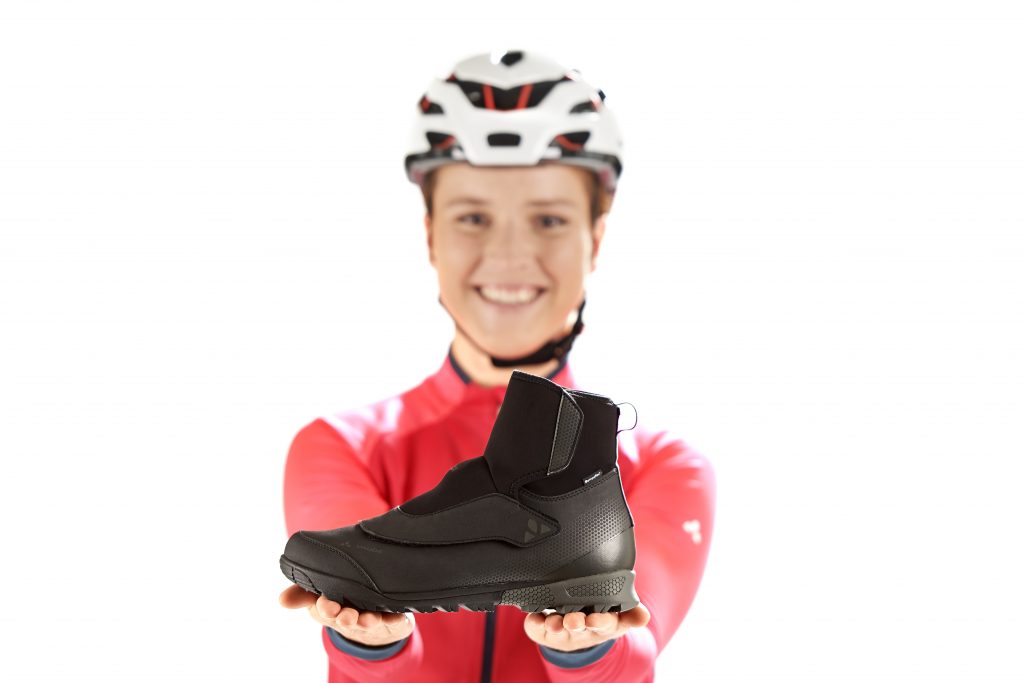
Sustainable bicycle shoe
VAUDE also has some interesting developments in the wheel sector. The new winter cycling shoe Minaki II STX is waterproof, warming and ecologically sustainable. For insulation VAUDE uses 90% recycled insulation material from Primaloft. In combination with the sustainable, 100% recycled Sympatex membrane and 100% recycled fleece lining, this is a real “feel-good package” for winter cyclists.
Sustainable children’s shoes
Sympatex also cooperates with partners in the children’s footwear sector who are strongly committed to sustainability. The three most popular German children’s shoe manufacturers RICHTER, RICOSTA and LURCHI from SALAMANDER have been relying on our climate-neutral, recyclable and 100% PTFE-free and PFC-free Sympatex membrane for many years. Furthermore, these partners have switched to recycled Sympatex linings in their collections. In addition to using sustainable Terracare® leather, the companies also pay particular attention to quality and short production routes. Most of the collections are produced in Germany and neighbouring European countries in a way that is as climate-friendly as possible.
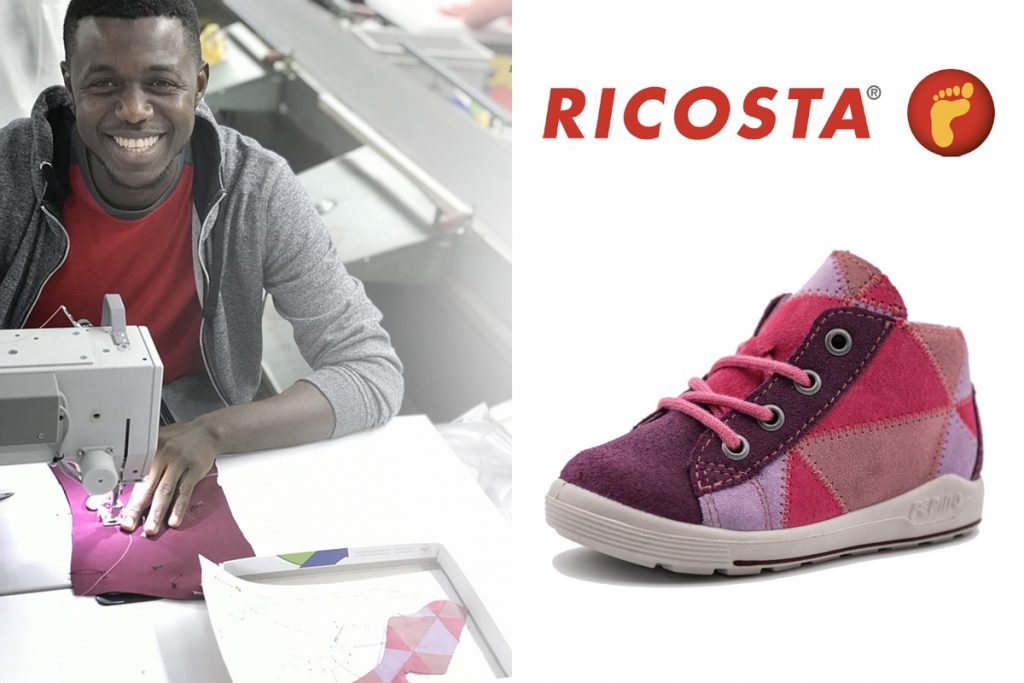
A particularly congenial project is “Patch”, a model made of shoe leather remnants of the PEPINO brand by RICOSTA. Patch” was brought into being by the refugee Momdou Jallow from Gambia, who is doing an apprenticeship in leather processing at RICOSTA. In his home country almost everything is reused and nothing is thrown away that is still usable. This is how the idea of making individual children’s shoes from leather leftovers came about. The Clue: each “patch” model is absolutely unique.
Our conclusion: This shows again: Where a will, there a way! And keep your eyes open when buying (sustainable) shoes! In order to avoid unintentionally supporting practices that you do not want to support, we recommend that you always pay attention to the seals and checkpoints described. And in case of doubt: asking helps!
评论 (0)
Write the first comment